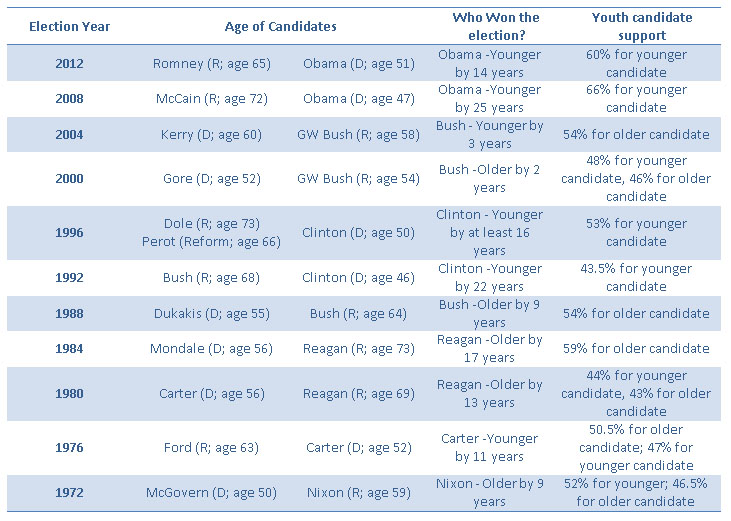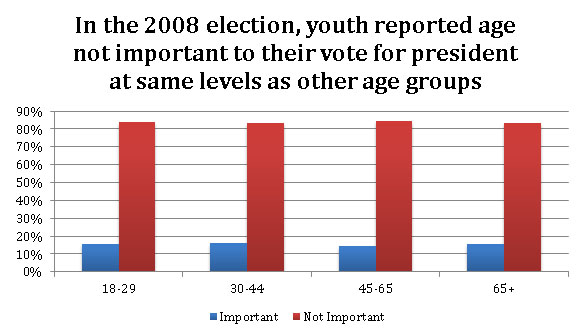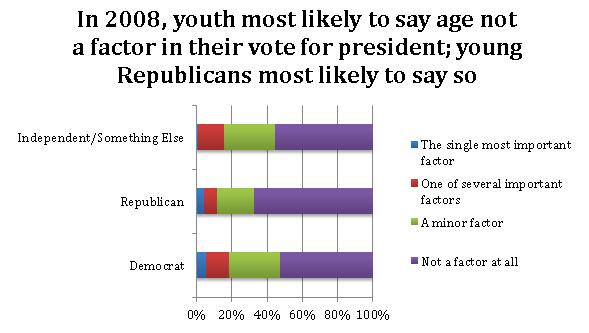Does the Age of a Presidential Candidate Matter to Young Voters?
Few young people say that the age of a candidate matters to them. Youth (ages 18-29) have voted for the younger of the presidential candidates in a majority of recent elections, but the younger candidates have also generally been Democrats, which may explain young people’s choices. Some previous research finds that having the option of a younger candidate may boost youth turnout, but that research certainly does not suggest that the candidate’s age is a leading factor.
Young people have preferred younger presidential candidates, but why?
In seven of the last eleven presidential elections, a plurality of young people have voted for the younger presidential candidate. However, in six of those seven elections, the younger candidate was a Democrat. Only once has the Republican candidate been younger than the Democrat: in 2004, when George W. Bush ran against John Kerry.
In the four elections when youth support was greater for the older presidential candidate, young people supported John Kerry (D; 2004), George H.W. Bush (R; 1988), Ronald Reagan (R; 1984) and Gerald Ford (R; 1976).
Young people do not say that age matters
Recently, the largest age gap between candidates came in 2008, when then-Senator Obama ran against Senator McCain. While far more youth supported Obama than McCain, youth did not say that age was a major factor. In fact, youth were no more likely than other age group to say that age was important to their vote.
Overall in 2008, more Democrats than Republicans reported that age was an important factor, but there were no big differences by age. Few young people, Democrats or Republicans, reported that the age of the candidates was “the single most important factor” in deciding their vote: only 6% of young Democrats and 4% of Republicans. Republican youth in 2008 were most likely to say that age was “not a factor at all.” It’s worth noting that many of those who were 18 to 29 years old in 2008 will be over 30 in 2016, and today’s young voters could have different opinions. Also, while age may not substantially affect young voters’ choice of candidate, recent research[1] suggests that college students felt a greater “commitment to vote” in elections with a young candidate (when controlling for partisanship), and that competitive contests with a large age gap between senatorial candidates in competitive races saw a modest boost in turnout.
Looking ahead
So far in 2016, we have younger Republican candidates when compared to the announced Democrats. This is virtually unprecedented, with the exception of Kerry vs. Bush in 2004. Regardless, even if age matters some, it does not swamp other factors. As we’ll show in future posts, exit poll data points to young people reporting that issue positions and being in touch with people like themselves are more connected to candidate choice than age and other personal qualities of candidates.
-Abby Kiesa
[1] Pomante, M. J., & Schraufnagel, S. (2014). Candidate Age and Youth Voter Turnout. American Politics Research, 1532673X14554829.








